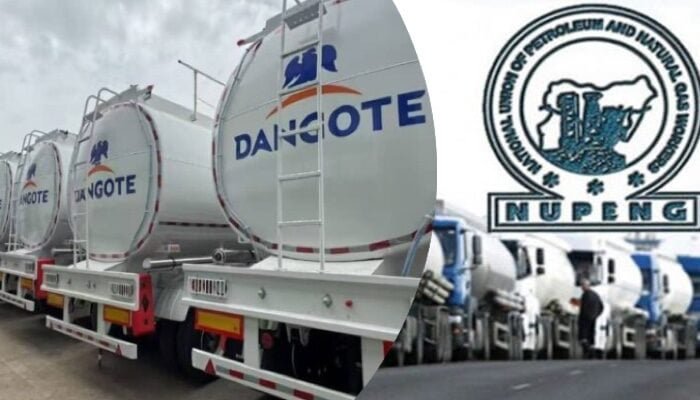THE National Industrial Court sitting in Abuja has granted a major reprieve to the Dangote Petroleum Refinery and two other oil companies by restraining the National Union of Petroleum and Natural Gas Workers (NUPENG) and the Direct Trucking Company Drivers Association from embarking on any strike or industrial action capable of disrupting refinery operations.
Justice E. D. Subilim issued the order while ruling on an ex-parte motion brought before the court by Dangote Petroleum Refinery, MRS Oil Nigeria Limited, and MRS Oil and Gas Company Limited.
In the motion marked NICN/ABJ/279/2024, the applicants, through their counsel, George Ibrahim, SAN, of Ogwu James Onoja SAN & Co. sighted by News Point Nigeria, urged the court to protect them from what they described as a looming attempt by NUPENG and its allies to paralyse operations at the multi-billion-dollar Dangote Refinery.
They asked for an interim injunction restraining NUPENG, its members, agents, or privies from initiating any industrial action aimed at crippling the refinery’s operations, pending the determination of a substantive motion on notice.
Similarly, the applicants prayed the court to bar the Direct Trucking Company Drivers Association from joining any strike orchestrated by NUPENG and to compel them to continue providing petroleum trucking services to the refinery and to Nigerians.
Justice Subilim, after listening to the arguments of the senior advocate, granted all the prayers sought in the ex-parte application.
The ruling effectively bars NUPENG and the trucking association from: embarking on any form of strike action or industrial disruption, participating in or supporting any strike action that could frustrate the operations of the three applicant companies and suspending trucking services to the refinery and the Nigerian public until the case is heard and determined.
The judge emphasised that the order will remain in force pending the resolution of the substantive dispute.
The ex-parte motion was brought under Order 22 Rules 1, 2, and 3 and Order 17 Rules 1 and 4 of the Industrial Court Rules, as well as Section 40 of the 1999 Constitution, which deals with freedom of association and industrial relations.
By invoking its powers, the court sought to preserve the status quo and prevent an escalation of industrial tension that could have wide economic consequences, including potential fuel supply disruptions.
The case is expected to come up for hearing on the motion on notice in the coming weeks, where both parties will fully argue their positions.







